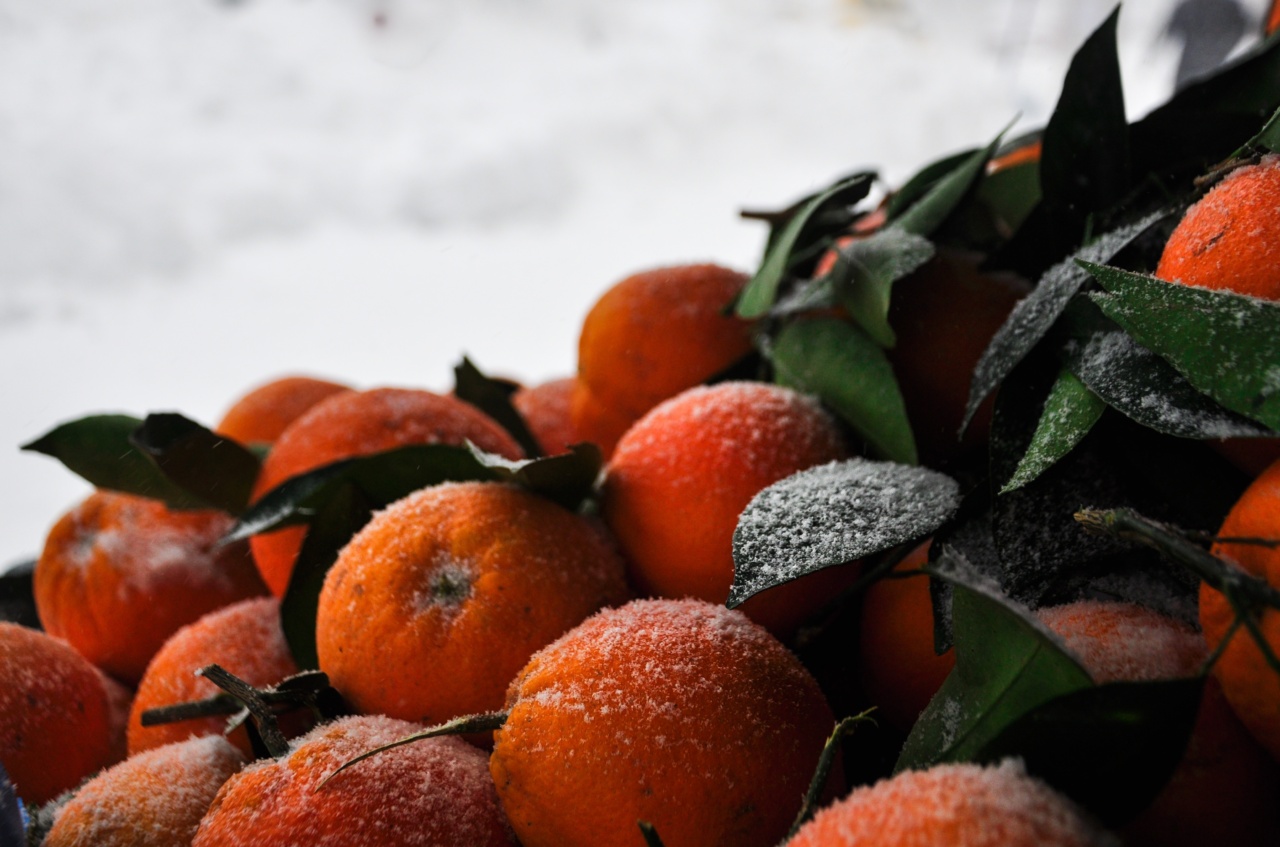The winter season often brings with it a host of illnesses, ranging from the common cold to more severe respiratory infections. With the ongoing COVID-19 pandemic, keeping your immune system healthy has never been more crucial.
One way to boost your immunity is through proper nutrition and vitamin intake.
Vitamin C
Vitamin C is perhaps the most well-known vitamin for immune system support. It is a powerful antioxidant that can protect your cells from damage caused by harmful substances known as free radicals.
Vitamin C may also help to boost white blood cell production, which is essential for fighting off infections. Foods high in vitamin C include oranges, kiwi, strawberries, and broccoli.
Vitamin D
Vitamin D is another essential nutrient for immune function. It helps to regulate the immune system and has been shown to have anti-inflammatory effects.
During the winter months, when sunlight exposure is limited, it may be difficult to get enough vitamin D from the sun. Foods such as fatty fish, egg yolks, and mushrooms are good sources of vitamin D, but supplements may also be necessary for some individuals.
Vitamin E
Vitamin E is a fat-soluble vitamin that is essential for maintaining healthy immune function.
It is an antioxidant that can protect your cells from damage and may help to stimulate the production of natural killer cells, which play a role in fighting infections. Good sources of vitamin E include almonds, sunflower seeds, and spinach.
Zinc
Zinc is a mineral that plays a critical role in immune function. It is essential for the development and function of white blood cells, which are necessary for a healthy immune response.
Zinc also has antiviral properties and may help to reduce the duration and severity of the common cold. Foods high in zinc include oysters, beef, and pumpkin seeds.
Selenium
Selenium is a mineral that functions as an antioxidant in the body. It may help to reduce oxidative stress and inflammation, which can be beneficial for immune function. Selenium has also been shown to enhance immune cell activity.
Good sources of selenium include brazil nuts, tuna, and whole grains.
Vitamin A
Vitamin A is a fat-soluble vitamin that is essential for immune function. It helps to maintain the integrity of mucous membranes, which serve as a barrier against harmful pathogens.
Vitamin A also plays a role in the development and function of white blood cells. Foods high in vitamin A include sweet potatoes, carrots, and spinach.
Vitamin B6
Vitamin B6 is a water-soluble vitamin that is required for a healthy immune system. It is involved in the production of antibodies and white blood cells, both of which are necessary for fighting infections.
Vitamin B6 also helps to regulate the immune response and reduce inflammation. Good sources of vitamin B6 include poultry, fish, and bananas.
Vitamin B12
Vitamin B12 is another water-soluble vitamin that is essential for immune function. It plays a role in the production of white blood cells and antibodies and can help to regulate the immune response.
Vitamin B12 has also been shown to have antiviral properties. Foods high in vitamin B12 include liver, clams, and fortified cereals.
Folate
Folate is a water-soluble B vitamin that is essential for immune function. It is involved in the production of white blood cells and antibodies and may help to reduce inflammation.
Folate also plays a role in the development and function of T cells, which are important for fighting infections. Good sources of folate include leafy greens, beans, and fortified cereals.
Vitamin K
Vitamin K is a fat-soluble vitamin that is necessary for proper blood clotting. It may also play a role in the immune system by helping to regulate immune cell function. Vitamin K is found in leafy greens, such as spinach and kale.
In addition to these vitamins and minerals, it is important to maintain a healthy and balanced diet that includes plenty of fruits, vegetables, whole grains, lean protein, and healthy fats.
Adequate hydration and regular exercise can also help to support a healthy immune system.
Conclusion
While there is no guaranteed way to prevent illness, taking steps to support your immune system can help to reduce your risk of infection and improve your overall health.
Eating a diet rich in essential vitamins and minerals, such as vitamin C, vitamin D, vitamin E, zinc, selenium, vitamin A, vitamin B6, vitamin B12, folate, and vitamin K, is one effective way to boost your immunity during the winter season.






























